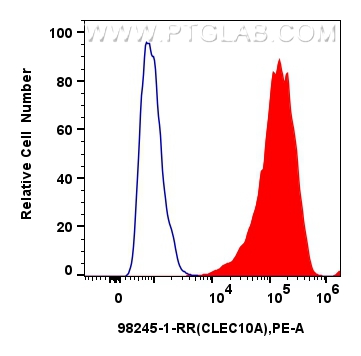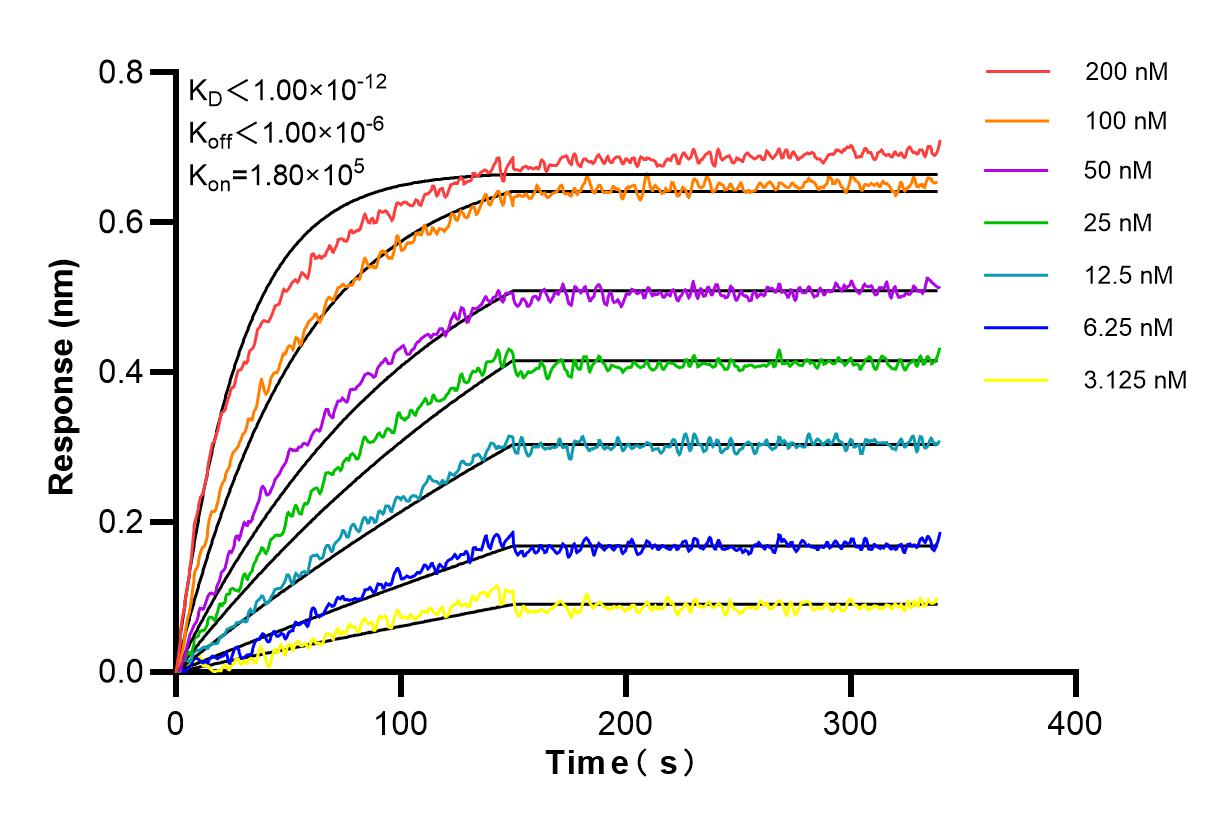验证数据展示
经过测试的应用
| Positive FC detected in | Human immature monocyte-derived dendritic cells |
推荐稀释比
| 应用 | 推荐稀释比 |
|---|---|
| Flow Cytometry (FC) | FC : 0.25 ug per 10^6 cells in 100 μl suspension |
| This reagent has been tested for flow cytometric analysis. It is recommended that this reagent should be titrated in each testing system to obtain optimal results. | |
| Sample-dependent, Check data in validation data gallery. | |
产品信息
98245-1-RR targets CLEC10A/CD301 in FC applications and shows reactivity with human samples.
| 经测试应用 | FC Application Description |
| 经测试反应性 | human |
| 免疫原 |
Recombinant protein 种属同源性预测 |
| 宿主/亚型 | Rabbit / IgG |
| 抗体类别 | Recombinant |
| 产品类型 | Antibody |
| 全称 | C-type lectin domain family 10, member A |
| 别名 | CLEC10A, C-type lectin domain family 10 member A, CLECSF14, CLECSF13, CD301 |
| 计算分子量 | 316 aa, 35 kDa |
| GenBank蛋白编号 | BC039011 |
| 基因名称 | CLEC10A |
| Gene ID (NCBI) | 10462 |
| 偶联类型 | Unconjugated |
| 形式 | Liquid |
| 纯化方式 | Protein A purfication |
| UNIPROT ID | Q8IUN9 |
| 储存缓冲液 | PBS with 0.09% sodium azide, pH 7.3. |
| 储存条件 | Store at 2 - 8°C. Stable for one year after shipment. |
背景介绍
C-type lectin domain family 10 member A (CLEC10A), also known as CD301, macrophage galactose-type C-type lectin (MGL), DC-asialoglyco protein receptor (DC-ASGP-R) or human macrophage lectin (HML), is a type II transmembrane glycoprotein having a calcium-dependent carbohydrate recognition domain (PMID: 8598452; 11919201; 11698450). CLEC10A is expressed exclusively by myeloid professional antigen-presenting cells such as immature dendritic cells (DCs) and alternatively activated macrophages (PMID: 16998493). CLEC10A is a marker for human CD1c+ DCs (cDC2) (PMID: 29755453). It functions as an endocytic receptor for glycosylated antigens (PMID: 11919201).
实验方案
| Product Specific Protocols | |
|---|---|
| FC protocol for CLEC10A/CD301 antibody 98245-1-RR | Download protocol |
| Standard Protocols | |
|---|---|
| Click here to view our Standard Protocols |



